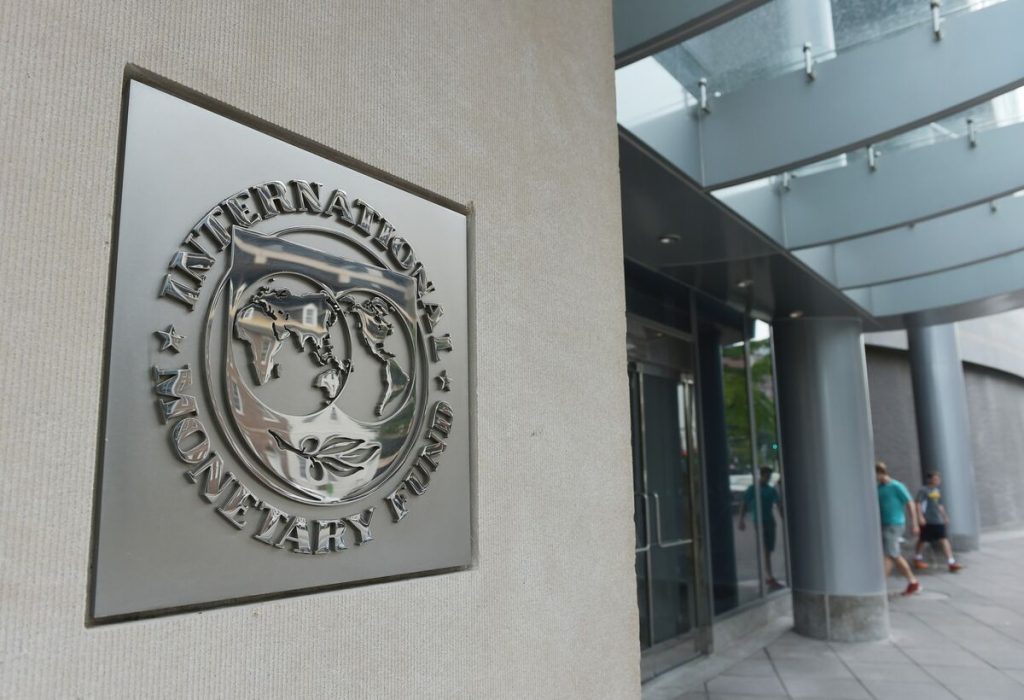International Monetary Fund headquarters in Washington, DC. Photographer: Mandel Ngan/AFP/Getty Images
The International Monetary Fund has applauded President Mahama’s government’s bold corrective actions to maintain the Economic Credit Facility (ECF) programme on track.
Combined with ongoing reform efforts and an improved external position, the Fund said the corrective measures are set to support Ghana in reaching the goals of economic stabilisation, rebuilding resilience, and fostering higher and more inclusive growth.
This is coming after the Executive Board completed the Fourth Review under the Extended Credit Facility Arrangement with Ghana.
“The authorities are strongly committed to restoring fiscal discipline and addressing the structural weaknesses that led to the slippages. They have passed a 2025 budget consistent with the programme’s objectives and enacted an enhanced fiscal responsibility framework. Looking ahead, saying the course of fiscal adjustment and completing the debt restructuring are key to ensuring fiscal sustainability. This should be supported by continued efforts to enhance domestic revenue mobilisation and streamline non-priority expenditure, while creating space for development priorities and enhanced social safety nets”.
“Improving tax administration, strengthening expenditure controls, and improving SOEs’ efficiency are of the essence to underpin durable adjustment. In this context, forcefully addressing the challenges in the energy sector and addressing related arrears are critical to contain fiscal risks”, it added.
The Fund also commended the authorities for making significant strides toward rebuilding international reserves and taking steps to bring inflation down.
“The Bank of Ghana should maintain an appropriately tight monetary stance until inflation returns to its target, reduce its footprint in the foreign exchange market, and allow for greater exchange rate flexibility, including by adopting a formal internal FX intervention policy framework”, it added.
It also noted that the authorities have taken intensified actions to address undercapitalised banks.
It, however, stated that a further strengthening of financial sector stability requires fully implementing the plan to strengthen the National Investment Bank, finalising the reform strategy to support state-owned banks’ viability and sustainability, and developing contingency plans to address weak banks that fail to recapitalize.
It urged the Bank of Ghana to step-up efforts to improve the crisis management and resolution framework, enhance financial-sector safety nets, and address legacy issues at the specialized deposit-taking institutions are also important.”
DISCLAIMER: The Views, Comments, Opinions, Contributions and Statements made by Readers and Contributors on this platform do not necessarily represent the views or policy of Multimedia Group Limited.
DISCLAIMER: The Views, Comments, Opinions, Contributions and Statements made by Readers and Contributors on this platform do not necessarily represent the views or policy of Multimedia Group Limited.


